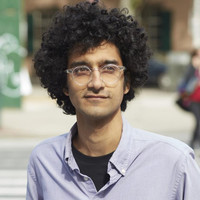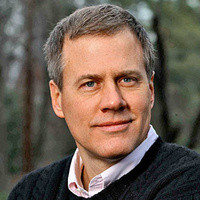Latif Nasser co-hosts Radiolab. He also hosted The Other Latif and the Netflix documentary series Connected.
“It’s so easy to hate everything and be cynical. There’s a kind of ease to that. It takes a lot more courage to go up in front of everybody and be like, This is awesome. I love this. That takes a lot of guts, I think.”
Thanks to Mailchimp for sponsoring this week's episode.






